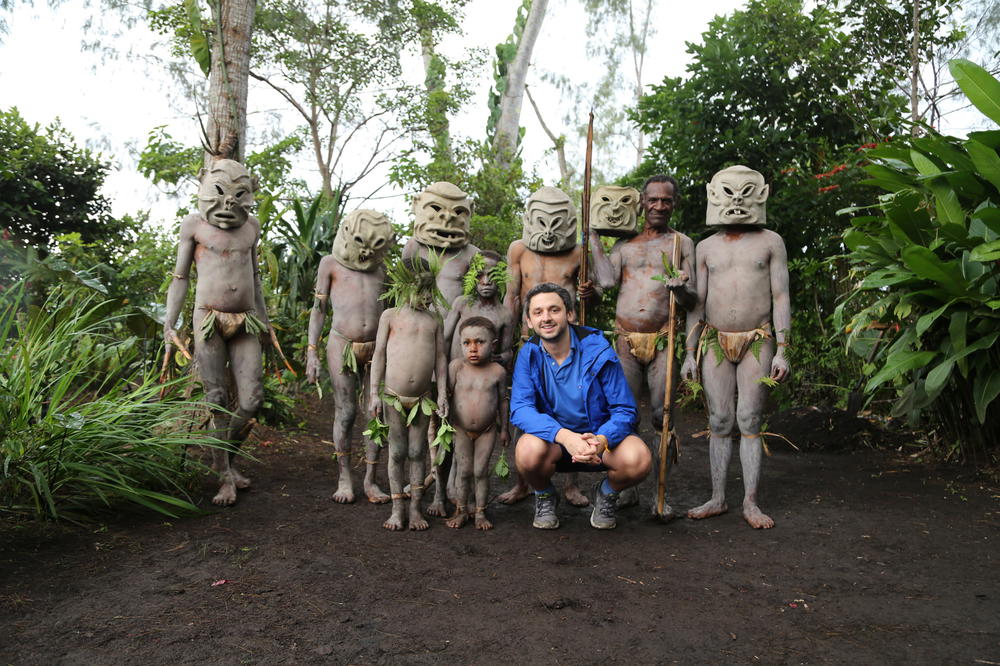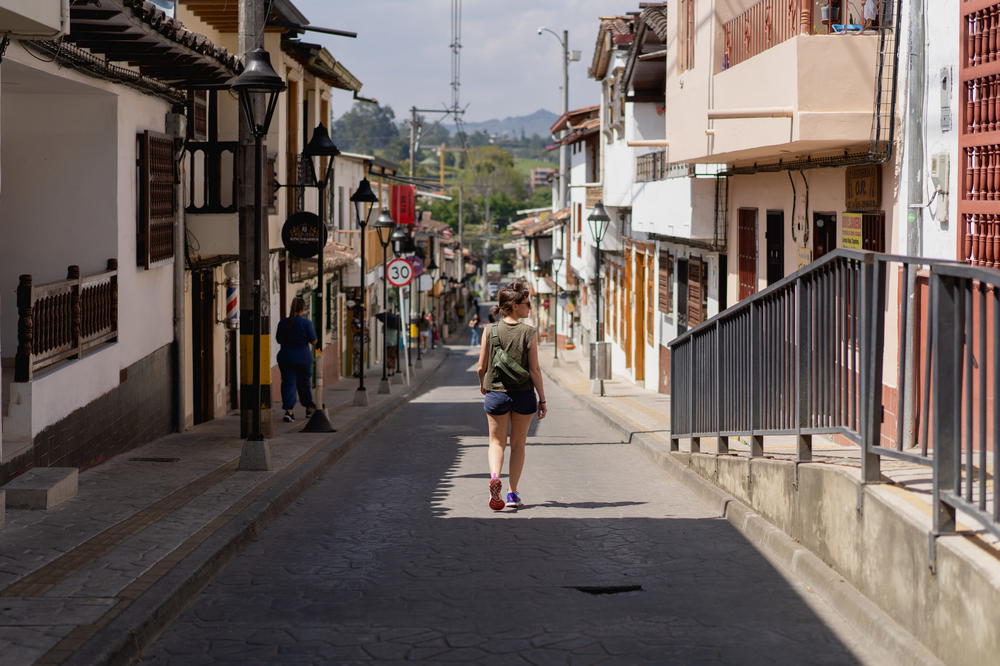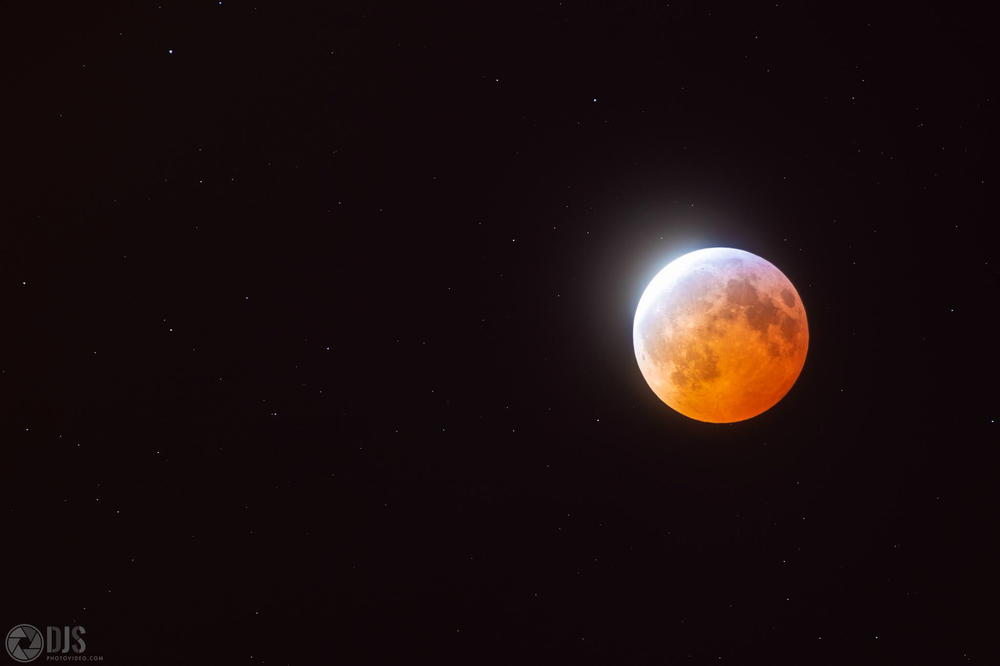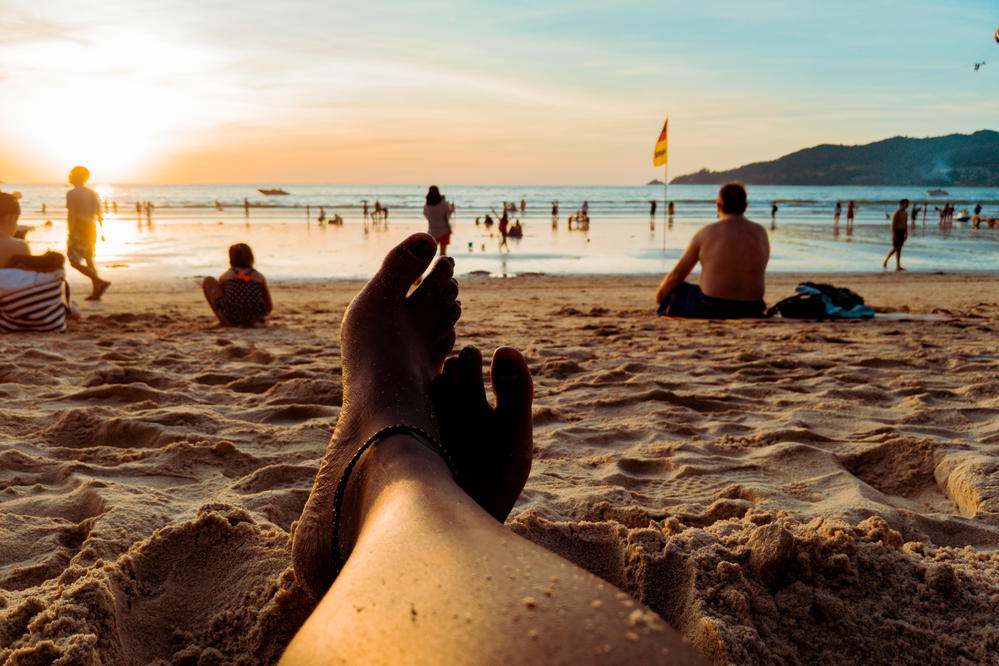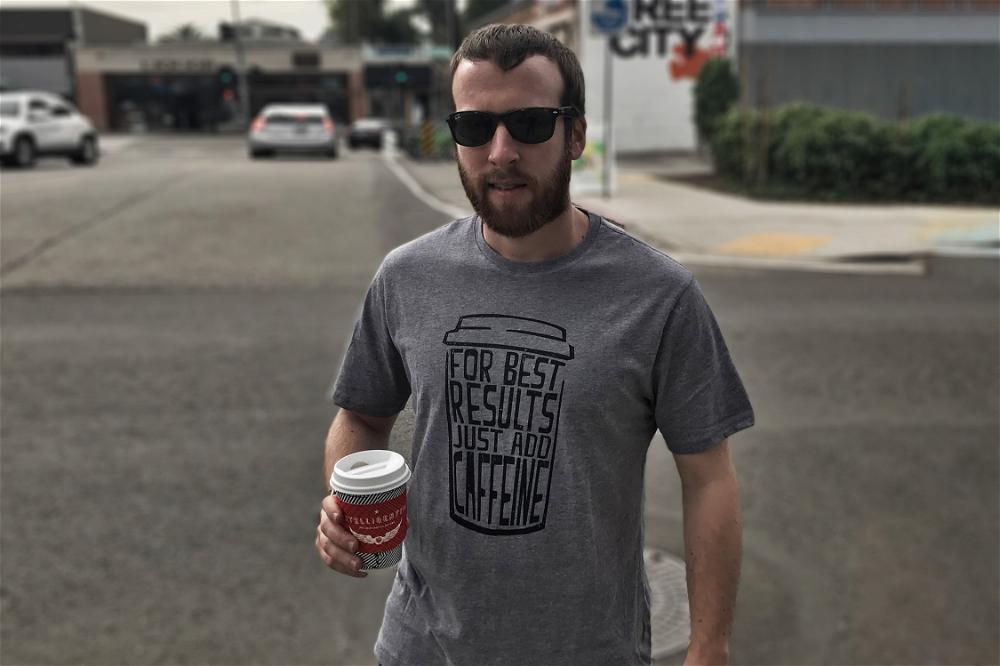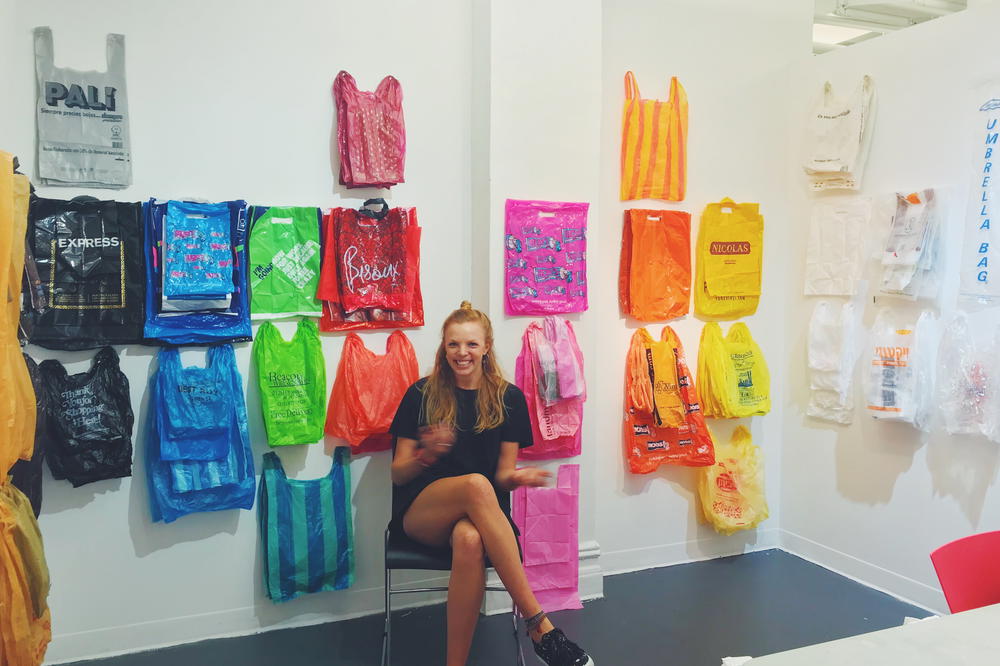A Journey to Authoring a Travel Memoir: Interview with Travis King
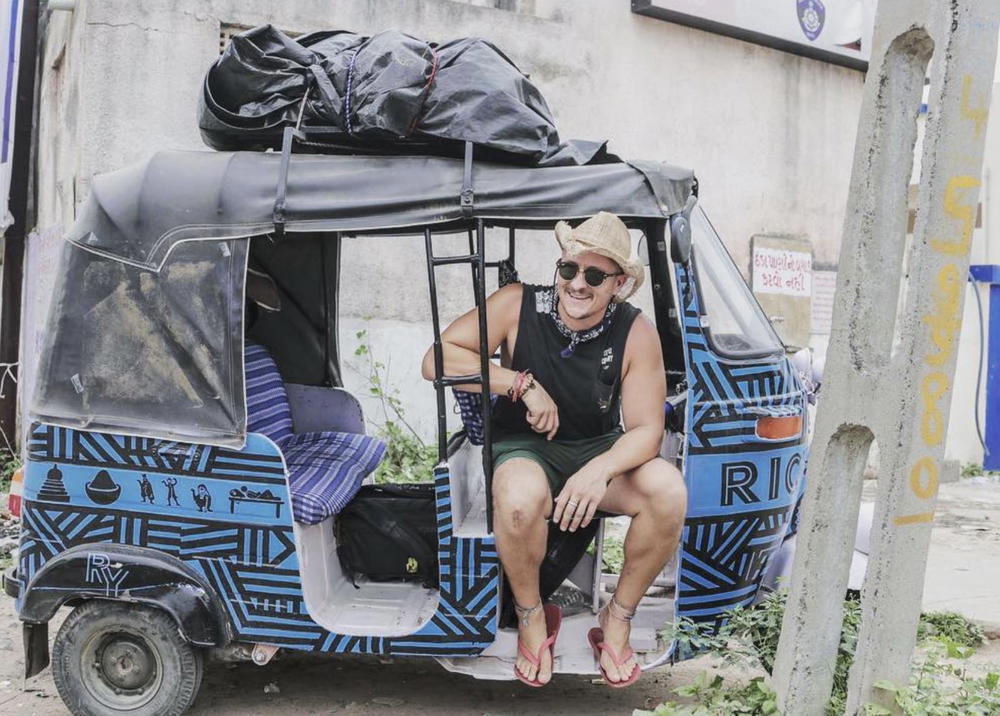
In this interview with world traveler Travis King, see how he wrote and published his first travel memoir, Not That Anyone Asked, and see his projects for the future.
This article may contain affiliate links. We earn a small commission when you purchase via those links — at no extra cost to you. It's only us (Becca & Dan) working on this website, so we value your support! Read our privacy policy and learn more about us.
Table of contents
- Tell us about your travel journey. When were your first travel experiences?
- Were there any travel experiences that shaped who you are?
- What were you doing before traveling and writing?
- When did you have the idea for the travel memoir?
- What were the original goals for the book? Did the goals change over time?
- What did you learn about publishing a book and what was the biggest challenge?
- What kind of feedback has there been about the book? Most memorable?
- Leave us with some wisdom for anyone who ever dreamed of writing a book.
- We heard you have another book in the works — could you tell us about that?
- Lastly, tell us about your coliving and coworking project in Puerto Escondido!
- Where to find Travis King and NTAA
Travis King is an expert traveler and friend of ours who we met from the Remote Year travel community. We originally met him when he was working as the Director of Community, serving as a larger-than-life social glue of sorts, connecting people on the programs with positive impact work as well as getting us all out to memorable events in cities across the globe.
After years of traveling, Travis wrote his first memoir, called “Not That Anyone Asked.” It’s a self-published book about wild stories and experiences he had as a backpacker, finding his way from corner to corner of the world.
He’s also working on his next big project, a coliving hotel and community space in Puerto Escondido, Mexico, where he lives (and it’s one of his favorite places, ever).
Want to know more about Travis — his travel story, his book and his future projects? Let’s hop into the interview!
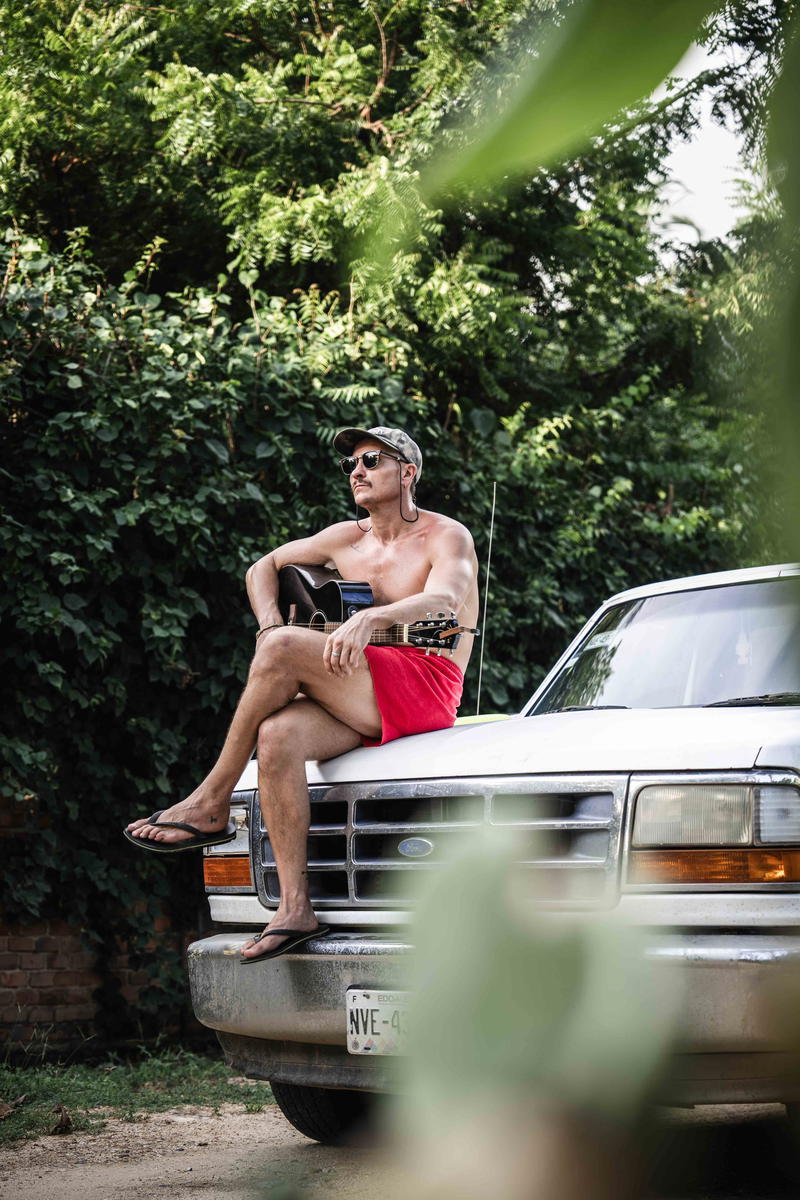
Tell us about your travel journey. When were your first travel experiences?
I remember having a weird backwards opinion that I should see as much of the US before I go somewhere else, so I did a lot of traveling inside the States. I went on a trip to Hawaii as an undergrad, and as much as it’s part of the US, it feels foreign in a way—it’s very different.
I wrote this in the book: I had a great interaction with a guy who was running a historic boat. People were saying you can move here (Hawaii) and get a job, which gave me a thought I might be able to live in Hawaii, like maybe I can do anything I want. That trip got my mind spinning about how big the world is and that I don’t need to be stuck in Wisconsin.
The first big trip was when I signed up to do a teaching program with World Teach. They send people who want to teach in an educational setting around the world, so I did one in South Africa.
The schools I worked in were on the Cape, and by the end I knew the area super well thanks to my guest hosts. I spent three months in South Africa and I fell in love. I happen to be skilled at soccer and hand drums, so I felt like I fit in there.
I’ve been back to South Africa a bunch of times since. It is an incredibly special country and one of my top countries. That trip was right before starting grad school.
I knew when I came back that I’d be doing a two-year program in Milwaukee, where I grew up. That whole two years, the images of Africa were still there, and the feeling of finding something interesting every day and trying new foods stuck with me. I still really felt called to go back out in the world.
During the last semester of my two-year grad program (because when you finish a serious educational degree, most adults in your life want to point you down a really professional track), I started telling people I was going to go to South America.
One of my pieces of advice that I give early in the book is to simply tell people in your life that you’re going to do something if you really want to do it. Then you have to.
As soon as grad school ended, I took a one-way flight to South America. I just loved it more than anything else I had ever done: bopping around hostels, making new friends every week, falling in love and going on adventures. The world was my oyster.
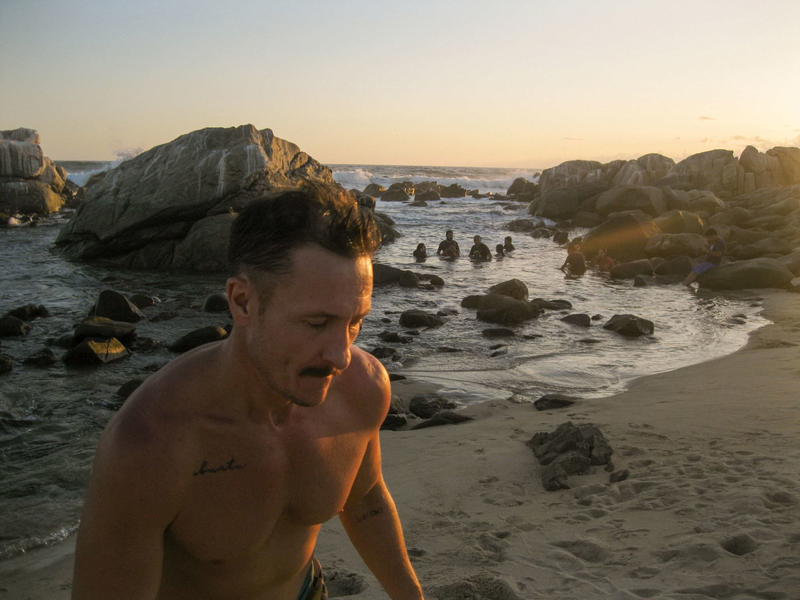
Were there any travel experiences that shaped who you are?
In the book, there’s a mention of that trip I took to Hawaii during undergrad that allowed me to start picturing the rest of my life very differently. South Africa did that as well.
This question feels sort of funny to answer, considering there’s a well-edited 333 pages on the topic. That first trip through South America changed my life entirely though, which is the first quarter of the book.
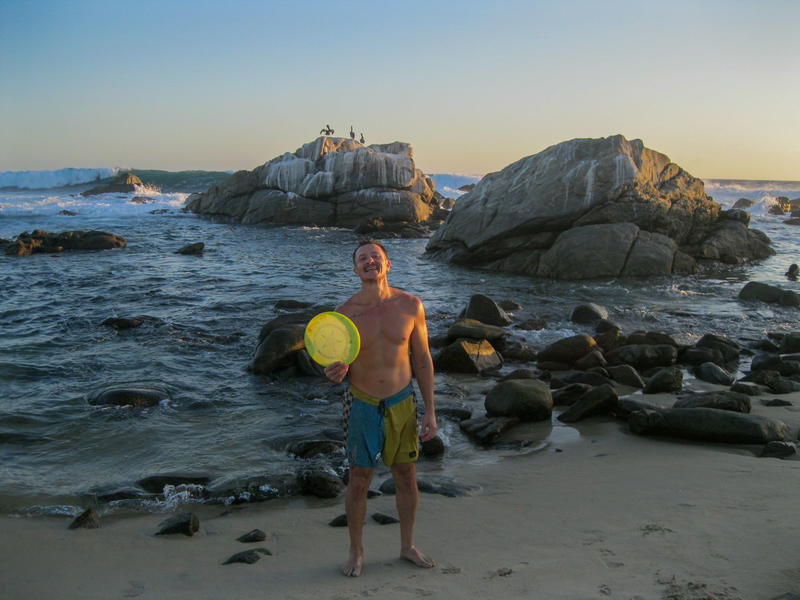
What were you doing before traveling and writing?
I was working with disadvantaged youth in the nonprofit sector. It was called the Trinity Fellowship: you had to have done national service (like the Peace Corps) to apply for that program, and they took 10 people in a fellowship program every year. It was founded by the guy who started Trek Bicycles, and I got a bike at graduation!
I thought my career path was going to be “the nonprofit thing.” The fellowship was for people who wanted to be in the field of nonprofit work, and I felt honored to be selected. When I left to travel in the early years, I was wondering if I was giving back to the world or to society.
All through my twenties, I was a camp counselor who didn’t know what else he was good at. The first role I took out of undergrad was working at youth centers in Madison, Wisconsin, in a part of town where there were primarily disadvantaged kids who didn’t have a lot of means. I’d hang out with those kids every day.
My first “real job” was with Boys Hope Girls Hope, and I worked in a children’s house in New Orleans. I was really passionate about helping kids and making their lives better.
Then, I started applying for masters degree programs, but I really loved my life in New Orleans. I remember getting the letter about the fellowship that had “good news,” and I thought, “Oh no.” It meant my chapter in New Orleans was over.
When did you have the idea for the travel memoir?
I think about a year into my trip I realized I was racking up some pretty wild stories, and that I might have enough of them for a book in the future. I didn’t actually start on it until maybe five years after that first thought, and once I wrote the first sentence, it was inevitable. I’m glad I’m a stubborn person who sees things through.
I remember being in Asia, and I wrote a blog piece about “13 things backpackers should know” that got featured in BuzzFeed. It was all of my best thoughts about traveling. That article got a really great reception on the internet. It was the first thing I did that “went around” and got a couple thousand reads.
That planted itself in my brain, in that maybe I had something to say, like maybe I can write a travel memoir.
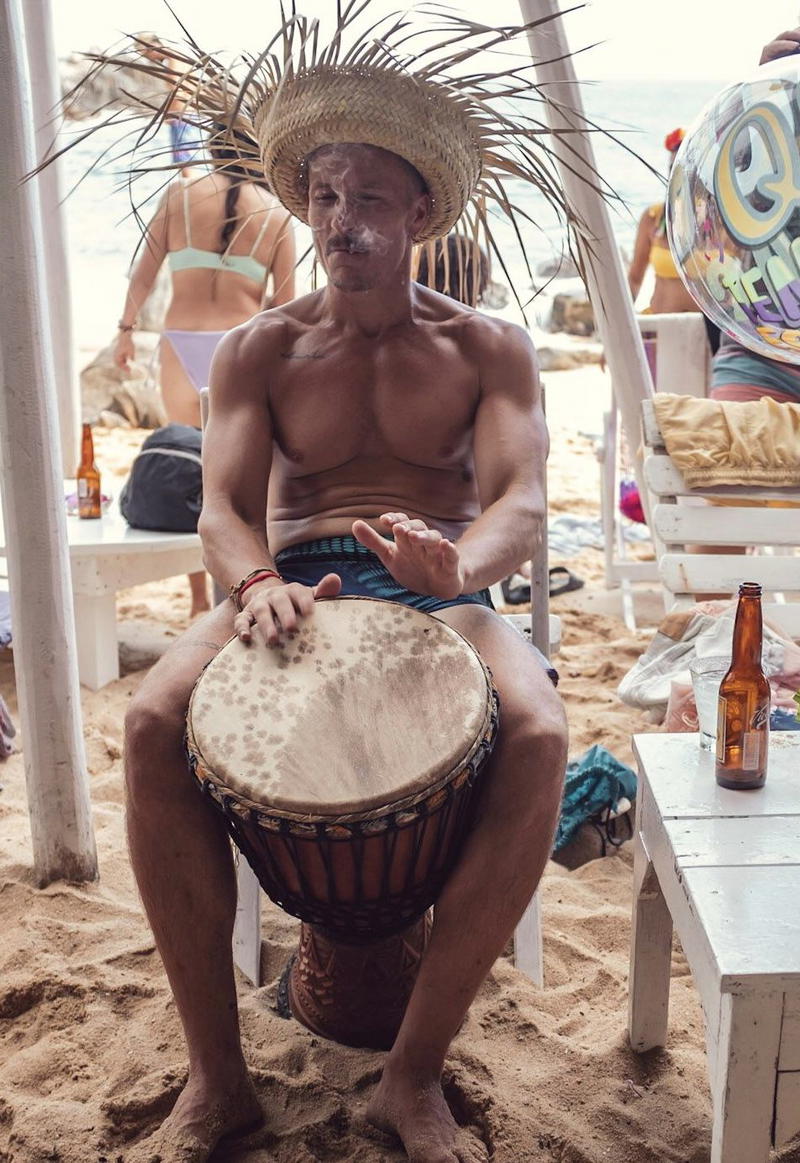
Once the seed was planted, it started growing. Also, I give credit to some of my teachers and professors at every level of education: I always got good feedback on the way I wrote. I never got a master’s degree in English or anything, but at every level of education, I was writing and got good feedback on that.
I think the third thing is that when I started to have all these crazy stories. I thought that if I could write them in a captivating way, people may read them.
I still remember being in Croatia, walking to the coworking space while on Remote Year, and something in my head was reminding me about the story I told you above, from when grad school was ending, and I told people I was leaving. It seemed like a good line to start a book with: “I started telling people I was leaving…”
I opened a Google doc and wrote it down. And I’m the type of person who starts something and then follows it through. The first sentence is followed by maybe 50,000 more, and my book wound up being 333 pages. It had to start somewhere.
I also set a goal of not letting a week pass without working on it. Despite having a full-time job and having all this stuff going on, I would always find an hour at the end of the weekend to work on it. I would either write new words, or edit old words–always something to “advance the book.”
After three years, the first draft was finished.
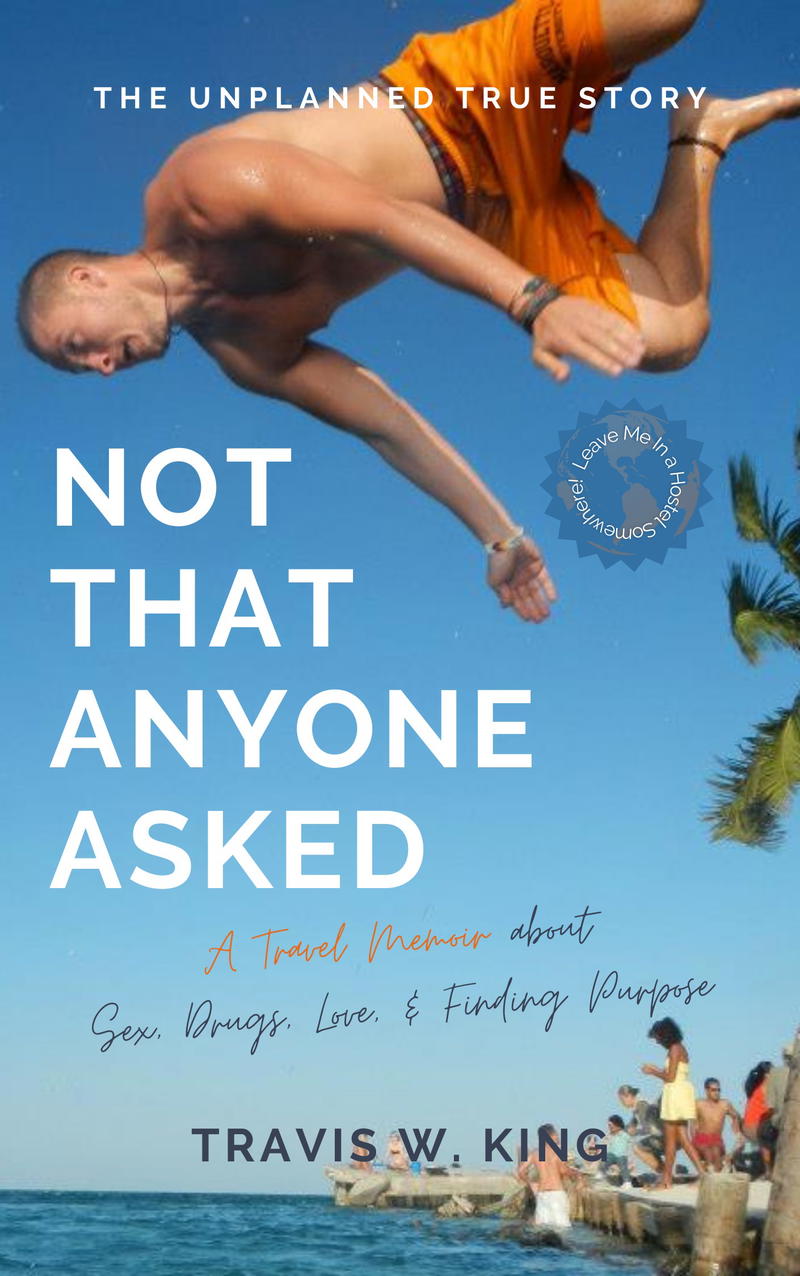
What were the original goals for the book? Did the goals change over time?
I always framed it as “something for my future grandkids to know how cool Grandpa was,” but once I realized I had something special brewing, I wanted the book to be included in the canon of great travel memoirs out there.
That’s still the goal, and I’m pretty sure it belongs—it just needs more readers and a wider net to end up in that category.
I also remember that as I was writing it I kept framing it as an “ebook.” I wasn’t even calling it a real book. I didn’t want my goals to be too lofty. I wanted to be able to achieve them.
I knew that in a financial way, I was going to be spending a bit of money. I wanted to make back the $1000 I had invested, and would’ve considered that a success.
It took some time after publication to make the thousand dollars back, so finally, now I’m up $5000. Living in Mexico, that’s pretty solid. But my goal in terms of financial things was to “not lose” money on it. If I broke even, then great, so I’m stoked with how well it’s done.
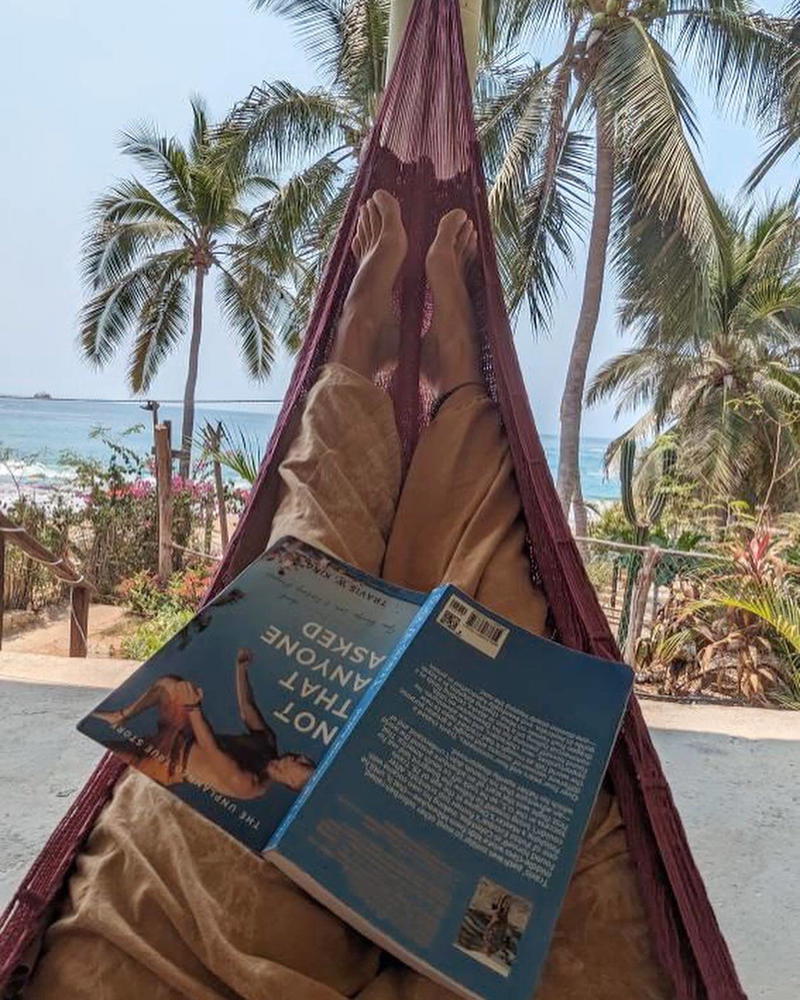
What did you learn about publishing a book and what was the biggest challenge?
I’ve written a couple of articles about this:
- Author’s Top 5 FAQs About Self-Publishing a 5-Star Travel Memoir (Not That Anyone Asked)
- 16 Essential Steps Towards Self-Publishing Your First Book: Part 1 of 2
A couple of things: one was sticking really true to the principle of being “completely honest.” Usually, there are elders and mentors who you’re worried about disappointing, and for me in that category, it’s my dad.
I knew that for the memoir to be good, I couldn’t hold back punches. I wrote every story truthfully. I knew there was going to be some blowback, but by sticking to that principle, there’d be something really special. I stuck to that, and I’m glad I did.
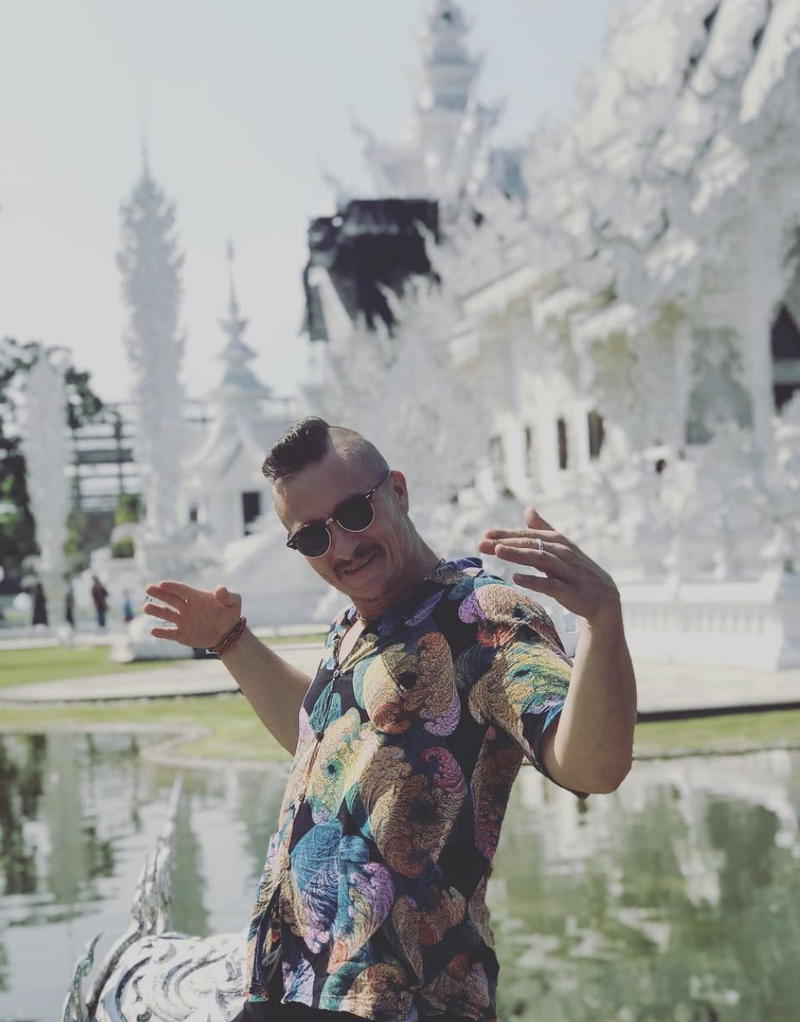
Another one was: writing the first draft took three years. I was a different person when I finished from when I started. For me, the editing process was during the pandemic. I tried to make it so that the tone, the style and the vibe were super cohesive. That was challenging.
It’s challenging to look at anything that big, to look at it “all at once” – getting it all consistent, such that you could imagine someone sitting down at a desk and writing it in a fever dream for two days straight.
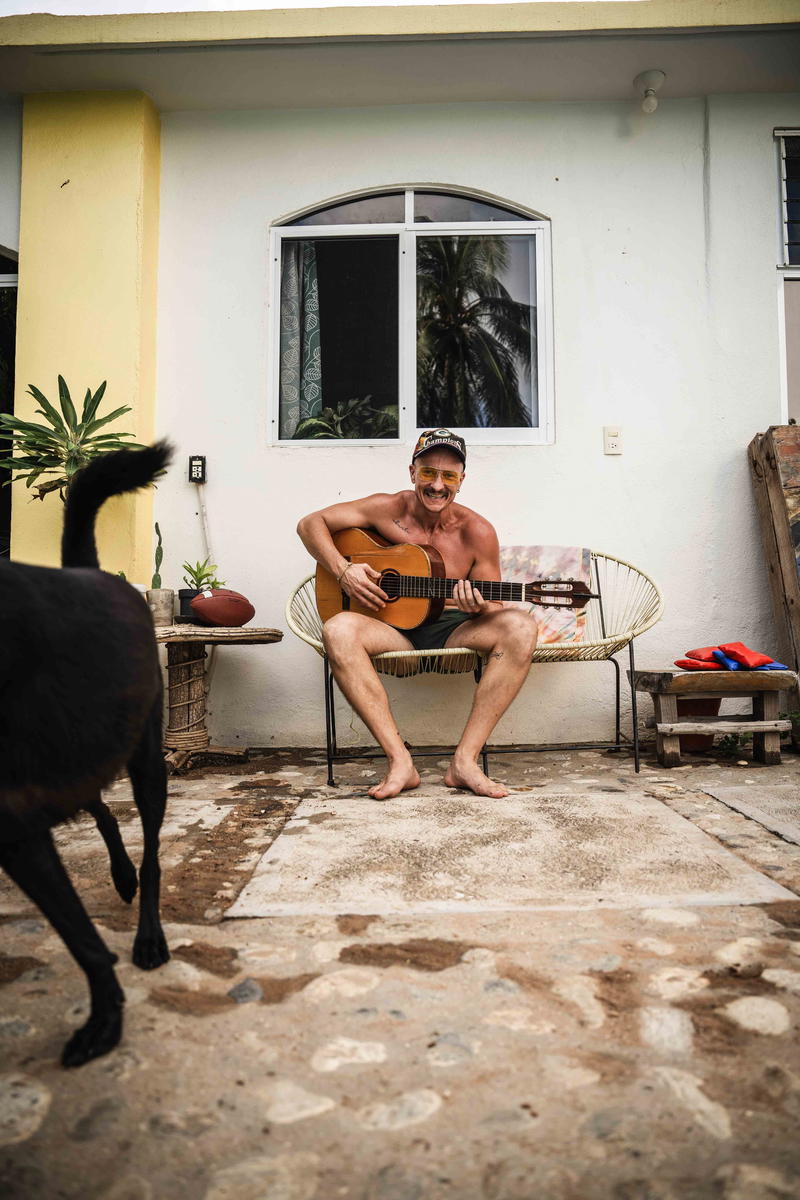
What kind of feedback has there been about the book? Most memorable?
I refer to this in the first article linked above! I get sweet messages about the book on a weekly basis from new readers now. The two most common, and my three favorite versions of positive feedback are:
- “It inspired me to finally book the flight.”
- “It inspired me to want to write my own stories.”
- “I read it in two days.”
Leave us with some wisdom for anyone who ever dreamed of writing a book.
It’s not going to write itself, so you have to be okay with the idea of building a huge mansion by yourself one brick at a time. One nail at a time.
It’s a labor of love if you’re an unemployed author, so do it for the art, because the money and the praise: all of that is the icing on the cake.
My other piece of wisdom would be, if you’re self-publishing, you have to realize that the first half of the journey is to write it. The second half is to push it and market it. No one is doing that for you.
I realized when I finally hit publish and when the presale finally went to those couple hundred people (mostly friends and family), that after that, no one was going to just “realize” the greatness of some guy’s travel memoir. Years later, I’m the one marketing it.
Any time I get a nice five-star write-up, I put that on the book’s Instagram. I am the author and the marketing team, so I would tell people who want to write a book that they need to understand that writing and editing is a huge step, but marketing is still something you have to do.
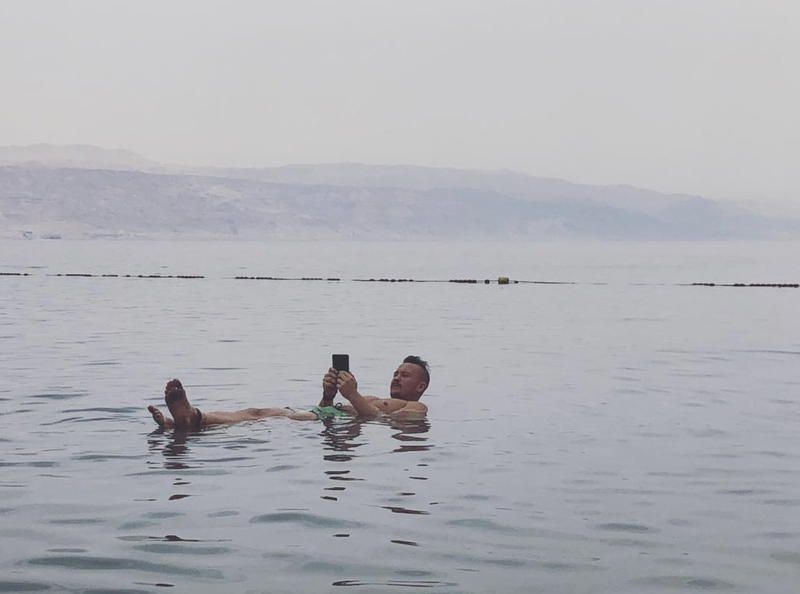
We heard you have another book in the works — could you tell us about that?
People always ask if I’m going to write about my four years with Remote Year, but I don’t plan to. What I do have outlined as my next memoir is going to be about my life from the start of the pandemic: basically getting fired, moving from CDMX to Puerto Escondido, Mexico, and putting all of my money into a piece of land to chase a dream.
NTAA was not meant to be a “how to” at all… but if you read it, you’ll get a WAY better idea of what traveling the world is like. This next book will be that, but for anyone who has thought, “What if I just moved to a foreign paradise and tried to open a little hotel?”
This is the story of chasing that dream. I might call it “moon shot,” but I’m not entirely sure yet!
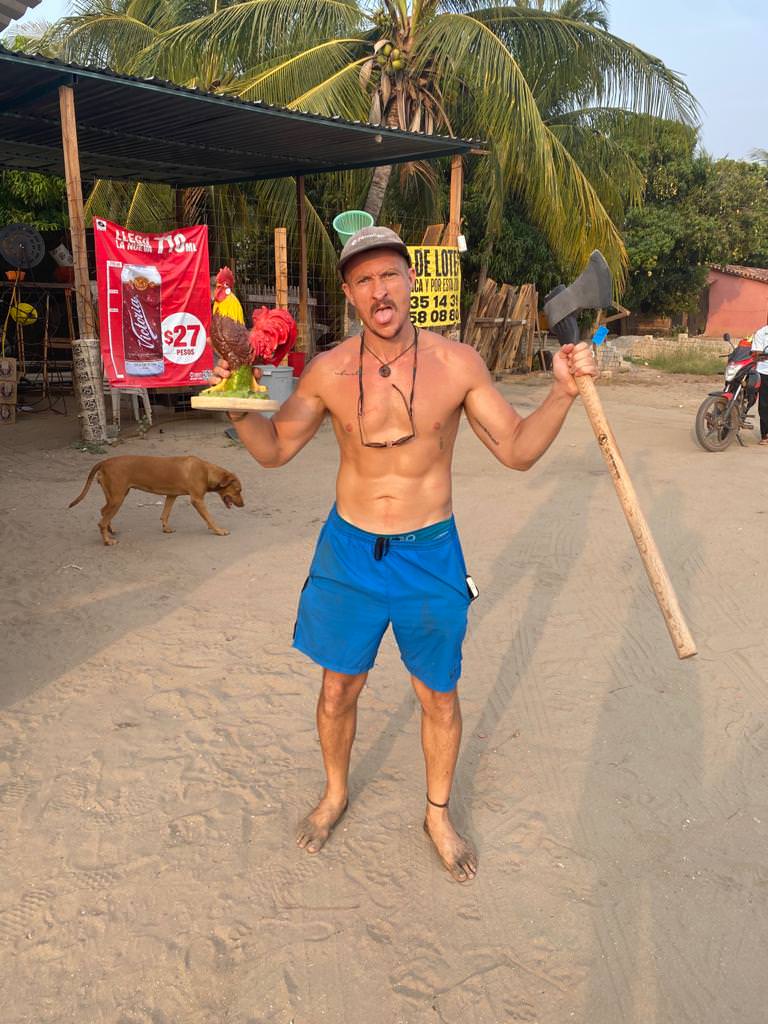
Lastly, tell us about your coliving and coworking project in Puerto Escondido!
It’s called Sobreluna, it’s in the heart of La Punta (my favorite neighborhood in the world) and should be open by the end of the year, after four years of creating the project, raising the money and building the dream.
It’s basically a paradise for travelers and nomads to come together, and it will have four different room types, a coworking, a cafe, a stage, a pool, a gym, a yoga palapa and a really fun calendar of events.
In other words, it will be “an idiot-proof place to have an amazing life.”
It’s going to be like a “Selina with a soul:” a Selina (a chic hostel with coworking options) for a slightly older crowd, and like an elegant version of that, with different things included in the project. Together, they create something really special, and hopefully famous, in our neighborhood.
I’m super excited about it, and this is something my brain has been working on for 15 years. At every hostel I’ve stayed at, I’ve thought, “Ooh, I should add that to my place someday.” So it’s been half a lifetime in the works.
Where to find Travis King and NTAA
- Follow Travis on Instagram
- Find NTAA on Instagram
- Buy the book “Not That Anyone Asked” on Amazon
- Keep tabs on the developments for Sobreluna
📓 Thanks for following our story
We use this corner of the site to share milestones and lessons from life on the road. If you're enjoying the peek behind the scenes, a coffee keeps us caffeinated to do more.
Keep the stories comingYou may also like
-
![A group of people posing for a photo.]()
Daniel Herszberg: Country-Counter with a Travel Mission
Our friend Daniel is a professional country-counter, aiming to be the youngest Australian to travel to every country on Earth. He’s telling all in this interview!
-
![the woman is walking down the street]()
Why We Don’t Take Vacations to Resorts (What We Do Instead)
We don’t take resort vacations, and we still have great travel experiences. Want to see what we do instead of booking resorts, and why we do it? Read my experience in why I avoid resorts.
-
![A blood moon is seen in the sky.]()
Daniel J. Stein: Traveling to Dark Skies for Astrophotography
What's it like to travel for dark sky astrophotography? We interview Daniel Stein, a talented photographer who travels to capture eclipses and the Milky Way.
-
![Sand on the beach.]()
How to Find Balance in Work and Travel: Interview with Kanacia
Kanacia's digital nomad journey shows us how soul searching is possible through a healthy balance of work and travel. How can you use travel as an inspiration for creativity? Kanacia explains it all.
-
![A bearded man wearing a grey t - shirt holding a cup of coffee.]()
Adam’s Coffee: Exploring Travel through Coffee
Ever think about traveling around the world for coffee? Our friend Adam started his Instagram to combine his love for coffee and travel. In this interview, he’s sharing how it all began.
-
![A woman sitting in front of a wall of plastic bags.]()
Ariela Kader: Making a Statement with Travel and Art
Ariela Kader shows us how a love of world travel and passion for art leads to creativity, making a statement about the environment and inspiration for change.
